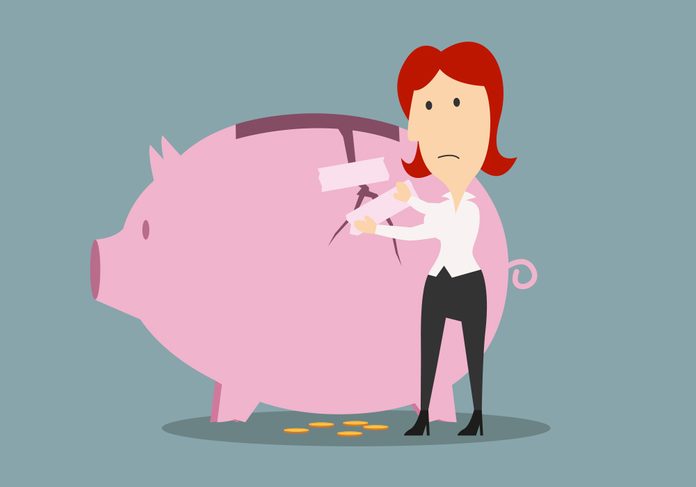How to Feel Better About Your Financial Situation, According to an Expert

Boring old liquid savings accounts may not be sexy, but they’re a cornerstone of being able to financially survive the unexpected.
I had over 150 financial planning sessions in spring of 2020, during the first Covid-19 lockdown. It was intense. It was, and continues to be, a wild financial ride for many.
At that time, there was so much uncertainty for everyone. But in those early weeks, I noticed something. Through the panic, the fear and uncertainty, there were some people who were surprisingly calm. Calm even though their business just closed unexpectedly. Calm even though their investments had suddenly dropped. Calm even though they had just been laid off. It’s not that they weren’t scared, they were. But they felt prepared, because they had an emergency fund. A small stash of money in a boring, liquid savings account.
They knew that they could financially survive several weeks until employment insurance kicked in. They knew they had a few months’ rent saved up in case their business made no money. They knew they had enough cash that they could wait out the market volatility until their investments bounced back. They knew they wouldn’t be racking up debt and interest charges on their credit cards. They were scared of the uncertainty, but they were prepared for it.
(Related: I Had $1.11 in Savings. Here’s How I Improved My Relationship With Money)
For years I’ve said that emergency accounts are like a warm blanket of calm. I freaking love them. But they’ve always been a tough sell. They lack the sexiness of investing or the stick-to grit of debt repayment plans. Once people are consumer debt free, they often skip right over emergency accounts and head right for retirement investing. The pandemic, however, made it crystal clear that having a stash of boring, liquid money is an extremely important part of a financial plan — a cornerstone, in fact because it’s what allows you to keep moving forward even after a setback.
So how can you make sure you’re ready for whatever the next setback may be? The standard thinking is that a good emergency fund has enough money to cover three to six months of your monthly bills and a bit of spending money for necessities like groceries. The thing is, this can be an unrealistic goal for many. If your basic living expenses are $4,000 a month, it’s going to take a long time to save up $12,000. This is why people often give up on emergency accounts — the numbers are daunting, and it takes too long to build up.
(Related: How to Save Money, Depending on Your Current Pandemic Situation)
It can help to think of it like more a series of steps, or levels of saving that you’re trying to achieve. The first and most important level is to set aside enough for six to eight weeks of living expenses. The second step is to always put a small amount away each month, in addition to that.
I’m not a big fan of extreme or ruthless budgeting. Overtime, these types of budgets typically fail. However, if you’re just starting out and really want to see that emergency account go up so you can reach that feeling of calm, set a very short timeline for yourself. Let’s say two-three months, and reduce some expenses that you think you can go without for that time. Think about the subscriptions that you don’t actually need, and convenience services. I also suggest taking all of your stored credit card information off of any online shopping app or website so that it makes it harder for you to buy things. Once you’ve got the ball rolling, you can reduce the amount that you’re saving towards emergencies, but you must keep putting money aside. That’s the key. At this point, though, it’s ok to go slower and more sustainably.
(Related: A Money Lesson We All Should Take Away From 2020)
Let’s say that you require $3,000 to financially survive six weeks of life without income. Once you’ve reached that $3,000, you could start saving towards other things, but you must ensure you always have money going towards this account. This way, the money here isn’t just for income replacement should your cash flow be disrupted, but also those expensive uh-oh moments. Uh-oh, the pipe froze. Uh-oh, my laptop broke.
Having money set aside for emergencies keeps you in control and out of debt when life throws you lemons. Using debt to bail yourself out of an emergency is like kicking yourself while you’re already financially down. It adds to the panic. Emergency accounts allow you to keep moving forward with your big picture financial plans by keeping calm and saving on.
Shannon Lee Simmons is the founder of the New School of Finance and the author of several books, including Worry-Free Money.
Now that you know about emergency savings funds, here are 3 smart ways to manage your money better.




